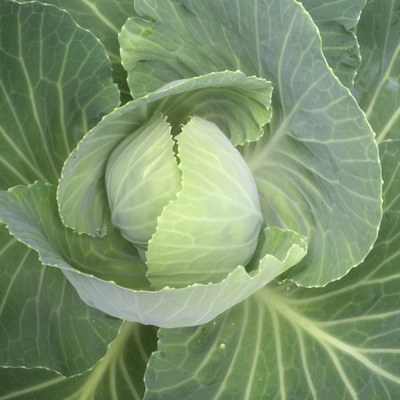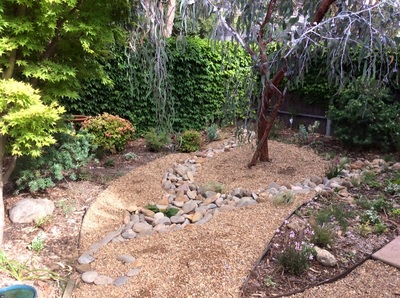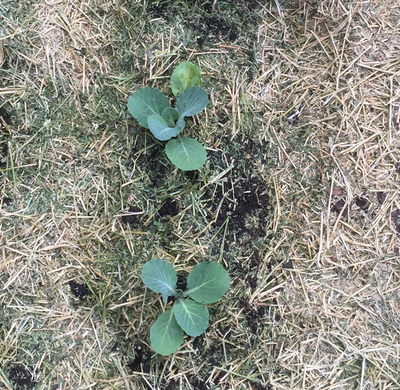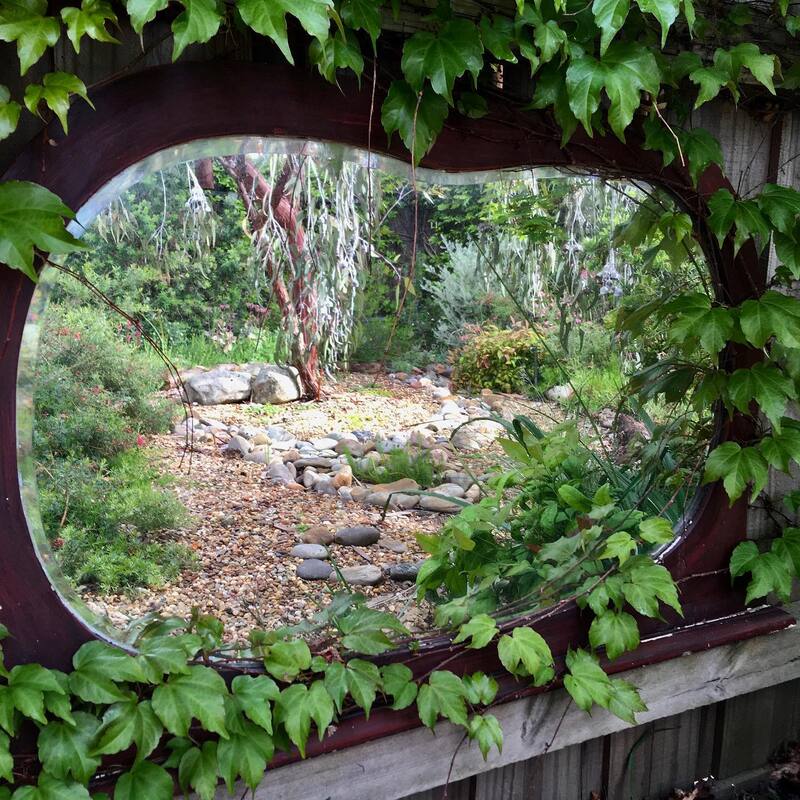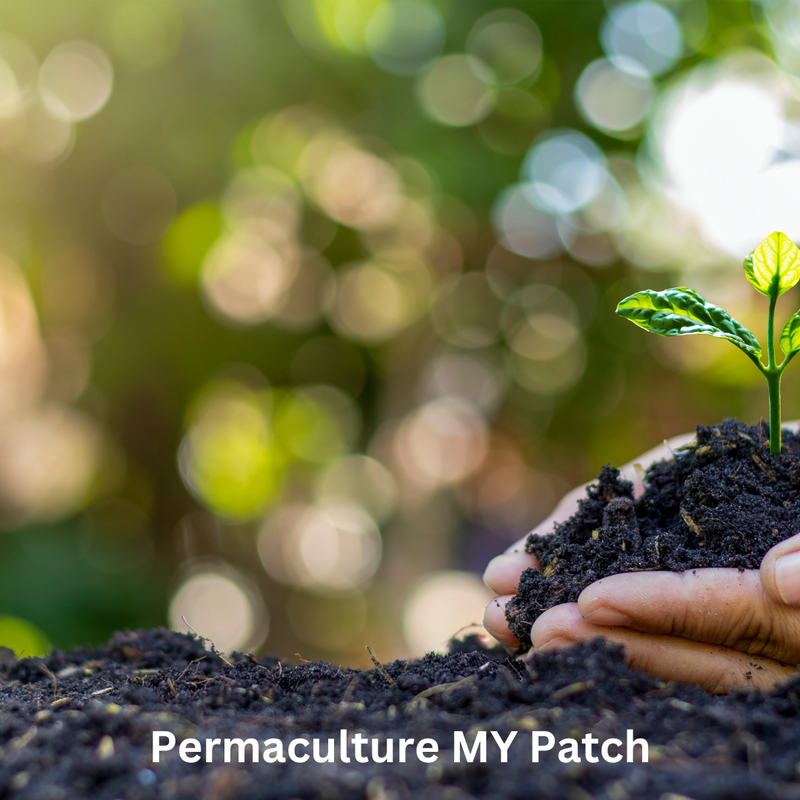Holistic Landscape Design
Residential and commercial Landscape Design
Sacred, restorative, memorial and healing gardens
Early Childhood and school sensory gardens
Permaculture design and education
Edible gardens in Melbourne, Permaculture MY Patch and DIY information
Garden Workshops
Wildlife Gardens - indigenous plants
Environment Educatation
Sacred, restorative, memorial and healing gardens
Early Childhood and school sensory gardens
Permaculture design and education
Edible gardens in Melbourne, Permaculture MY Patch and DIY information
Garden Workshops
Wildlife Gardens - indigenous plants
Environment Educatation
Deb is a professional Landscape Designer who listens to your needs and designs with creativity,
passion and integrity to produce professional, personalized landscape designs to scale, related plans, sketches and documents. While considering ethical responsibility, she works with nature and the client to create outdoor spaces which are therapeutic, environmentally sustainable, functional and aesthetically beautiful to enhance lives.
Deb works with local environmental organisations and coordinates a Community Garden and is registered with SHAREWASTE to accept local food scraps.
passion and integrity to produce professional, personalized landscape designs to scale, related plans, sketches and documents. While considering ethical responsibility, she works with nature and the client to create outdoor spaces which are therapeutic, environmentally sustainable, functional and aesthetically beautiful to enhance lives.
Deb works with local environmental organisations and coordinates a Community Garden and is registered with SHAREWASTE to accept local food scraps.
If you need guidance and personalized assistance with your garden,
please inquire about a consultation or Permaculture MY Patch
Why edible?
41% of Melbourne's food currently comes from our food bowl. Projections for 2040 is 20% to feed 7 million which is not sustainable.
An increase of 25% sustainable food production is the projection target to feed the world in 2050. (Foodprint Melbourne reports)
Why wildlife in gardens?
Sound conservation principles are vital design considerations. Creating environments comes with a responsibility to support life, many forms of life. Biodiversity in a garden can mimic nature's biodiversity, which in turn creates resilient and robust systems.
It is possible to support wildlife, access food and a beautiful outdoor space.
41% of Melbourne's food currently comes from our food bowl. Projections for 2040 is 20% to feed 7 million which is not sustainable.
An increase of 25% sustainable food production is the projection target to feed the world in 2050. (Foodprint Melbourne reports)
Why wildlife in gardens?
Sound conservation principles are vital design considerations. Creating environments comes with a responsibility to support life, many forms of life. Biodiversity in a garden can mimic nature's biodiversity, which in turn creates resilient and robust systems.
It is possible to support wildlife, access food and a beautiful outdoor space.
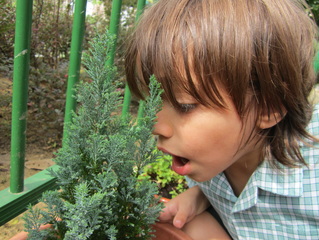 Early Childhood Environmental Education
Early Childhood Environmental Education
Early learning landscape designs and workshops
Deb has a particular interest in our future generations learning skills for adaptability and Eco-resilience. This may be reflected in playscapes, sensory gardens, vegetable gardens and Environmental Education.
Deb understands the many facets required of a family backyard or Early Childhood center to produce the happiest and healthiest outcomes in children and the critical aspects of a design for the 0-5yr old optimal growth period. She has 5-years Early Childhood employment where she conducted Environmental workshops and a 2-year Sensory Garden Project with 3-5 year old children. This project formed her Ba eq. in Applied Ecopsychology project. She continues to be passionate about Natural Sensory Playspaces for children creating opportunities for healthy sensory development, environmental education and Professional Development for teachers which in turn create healthier people, communities and environment.
Deb has a particular interest in our future generations learning skills for adaptability and Eco-resilience. This may be reflected in playscapes, sensory gardens, vegetable gardens and Environmental Education.
Deb understands the many facets required of a family backyard or Early Childhood center to produce the happiest and healthiest outcomes in children and the critical aspects of a design for the 0-5yr old optimal growth period. She has 5-years Early Childhood employment where she conducted Environmental workshops and a 2-year Sensory Garden Project with 3-5 year old children. This project formed her Ba eq. in Applied Ecopsychology project. She continues to be passionate about Natural Sensory Playspaces for children creating opportunities for healthy sensory development, environmental education and Professional Development for teachers which in turn create healthier people, communities and environment.

